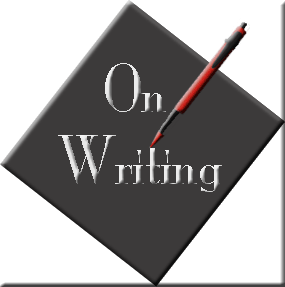When writers come off a writing marathon, often they’re left scrambling to catch up on all the other things a writer must do and all the life must-dos that have been neglected during the marathon.
Already drained, the writer addresses those things—there are never enough hours in the day (and night)—and the one thing that doesn’t get addressed is the writer.
It’s easy to get on the marathon treadmill and go from must-do to must-do. It’s actually hard not to do that because there are always a lengthy list of things that need doing. So the human being in the writer is most often the one left short with no down time or personal time to refresh and rejuvenate.
This is problematic for any creative person, but particularly challenging for a writer who relies on everything for storytelling. When everything is fodder and the writer’s world and exposure to it grows ever more narrow, the opportunities for fodder-gathering diminish.
That’s not just problematic or challenging, it depletes the creative well from which writers draw to write.
I’ve often said that a reader can’t get out of a book what a writer doesn’t first put in it. If the writer limits exposure, s/he also eliminates his or her emotional reactions to that stimuli. Emotions, as you know, are the means through which writers and readers connect. See the problem?
If you have an empty well, you’re emotionally absent. If you’re emotionally absent, you have nothing to say. If you have nothing to say, you’re not sharing anything that readers want to hear. The writer becomes locked in a vicious circle of producing work that lacks emotional authority or investment and that translates to uninspired work and that translates to boring work. Boring, for a writer, is deadly.
In a time when authors are competing not only with other books but with all other types of discretionary claims on readers’ time, well, that’s not a good time for a writer to be boring.
The fix isn’t difficult, but it does require discipline.
Now before I get to that fix, let me address the comments I know I’ll get on this. I know you can’t create more hours in your day. I know that you can’t get up any earlier or stay up any later because you’re already doing that. I know that must-dos are must-dos and can’t be neglected without unwelcome consequences. And I know that you’re pushed to produce such a quantity of material that there just isn’t a whole lot of time left to do much else—especially something just for fun. And I realize that you’ve likely forfeited or sacrificed all the hobbies you used to have so that you can write. Been there and done all that, and I know it requires you to have more irons in the fire than there are irons. You still need to refill the well—because of what happens when you don’t.
Let’s get specific. You’re in an intense situation. If it’s rare, then you feel the intensity. But if the intense situation is constant, what happens? You get numb. That’s an innate protective instinct that happens to guard you against the physical challenges that ride shotgun to being hyper-alert all the time. That, or the stress of being hyper-alert all the time becomes cumulative and you croak from a massive heart attack or, if you’re lucky, intense panic attacks, which often have the same kind of symptoms and require a lot of your time to eliminate.
So you can spend your time recovering from panic attacks or a heart attack, or be dead. Or you can structure what you’re doing so that you pause and have the time you need to reflect and take care of yourself and refill that creative well. Your choice.
There’s no such thing as a free lunch, and there’s no escaping that sustained high alert carries steep consequences. You can learn this the easy way—take this post and act on it—or learn yourself through firsthand experience. Your call.
THE FIX
1. Don’t overcommit. We tend to do this. A great opportunity comes along and we don’t want to miss it. But it is essential to weigh carefully the commitment and the return on investment.
Most of us want to do more, but we just can’t fit more into our schedules. If we say yes, telling ourselves we’ll find a way, we end up doing substandard everything. Manage your commitments so that what you do, you do your best. That’s the criteria question to ask yourself before making a new commitment: Can I give this project my best? If so, go for it. If not, say no.
2. Outsource. Writers have many commitments: writing, marketing, publicity, reviewing, editing, social networking, reading, researching and the list goes on and on. Look at what you’re doing and see what of it you can hire someone else to do. If that just isn’t possible, then scale down what you’re doing to that which is required and most productive.
3. Schedule time to refill the well. Whether it is to sit in the mall and people watch, have lunch out and listen to others chat so you connect to dialogue and what’s on people’s minds, or you take a walk, or see a movie, do something that is both relaxing and not mentally demanding. Or do something that is demanding but in a different way.
Example. I just came off a writing marathon. I wrote four books back-to-back, did the workup on three reissue novels, and prepared two detailed series, each with three books. My mind was tired. I was tired. I was empty.
So I switched over to video quick-takes on the books written. I had to study to do them, and then go about the task of actually creating them. Still mental work, but a different type of work. And a lot of fun.
In the process, I got the high of learning something new and seeing the end result. Also, I noted that while I was doing these, I was picking up tidbits of fodder. Looking at photos and footage clips are great fodder! I got more story ideas than I’ll ever write!
And the sense of accomplishment at something different was gratifying. Now, are they the best book videos I’ve ever seen? No. But they’re a start. Any skill requires investment to hone. I enjoyed myself and ended up with something I can share. I’m happy with that progress.
I also paused to watch a ton of movies. Some I’ve wanted to see for a long time, some were selected on the blurb, some on the title. Just like books! I loved that.
The bottom line in a short-take:
1. Manage your time.
2. Manage yourself. Discipline when you’re working.
3. Manage yourself. Discipline when you’re refilling your well.
Working and refilling the well are equally important. When you do both, you get the best results in both.
4. While writing is an all-consuming occupation, it is only a fulfilling life if it is balanced.
5. Make sure you find the right balance for you. Be mindful of it. Know what that takes for you. And Guard it!
Blessings,
Vicki






